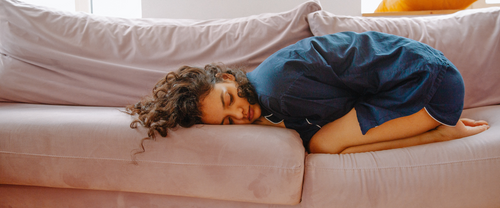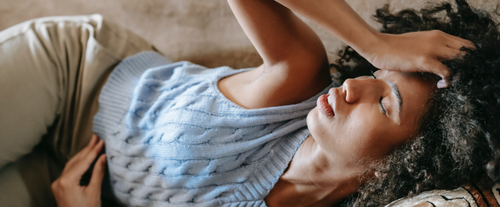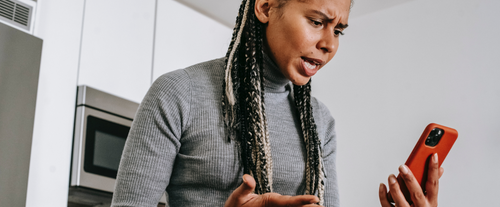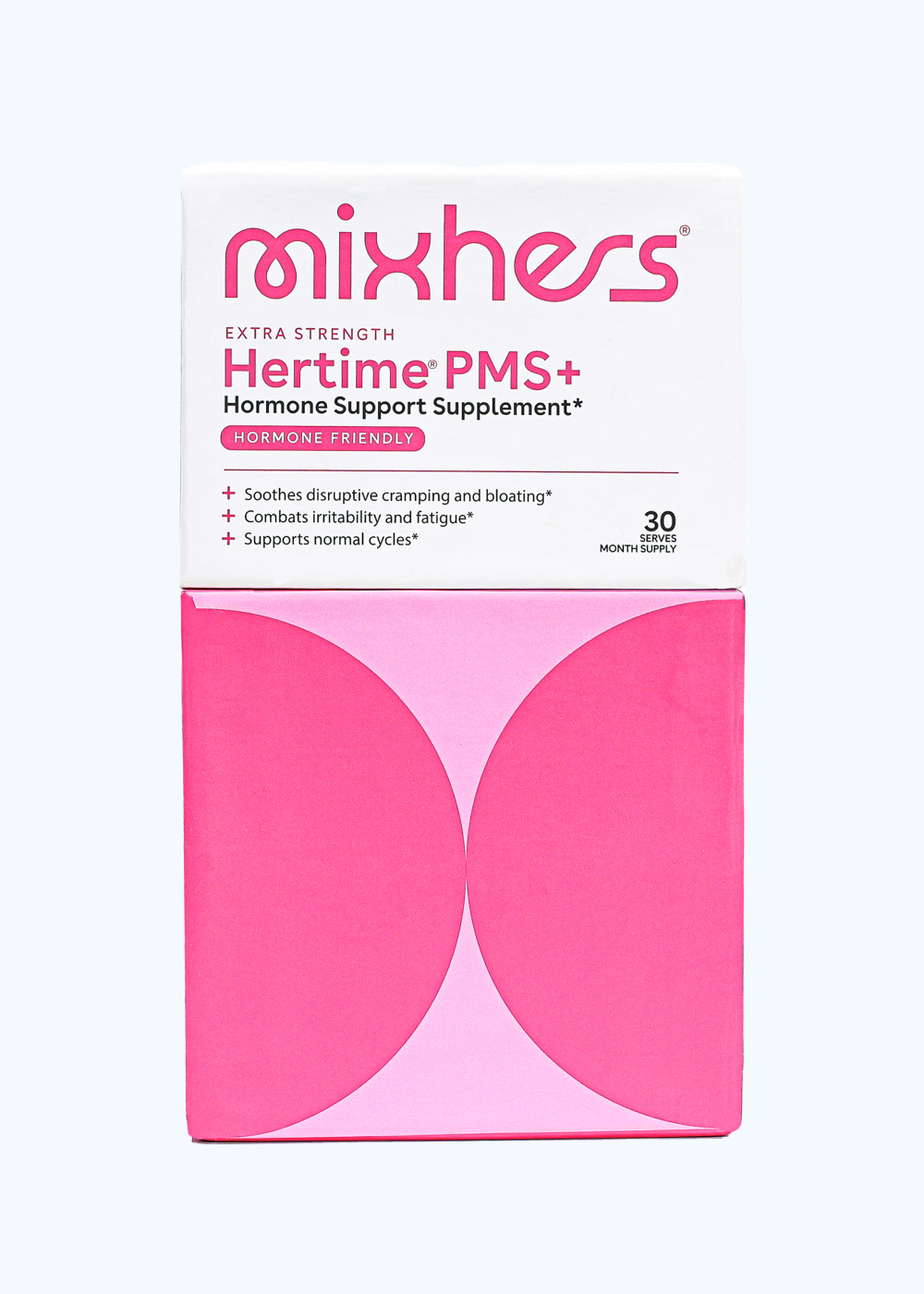Our bodies are very sensitive to hormone changes. When any hormone level rises or plummets, it can lead to the development of a migraine headache in some women. Generally, our favorite female hormones (i.e., estrogen and progesterone) are responsible for our monthly migraine symptoms, though serotonin plays an important role as well. These hormones rise and fall throughout our menstrual cycle. Here’s how changes in estrogen, progesterone, and serotonin can cause any of the migraines we learned about above.
During our period, our progesterone and estrogen levels drop. This drop in estrogen and progesterone can lead to hormonal headaches. In addition to pressure and pain in your head, you may also feel fatigued, cramps, and mood swings. These are all par for the course and aren’t unusual (though they’re annoying and disruptive).
Once our period is over, our progesterone and estrogen hormones start to wake up from their naps. As they rise, we may experience post-period headaches. Remember, though, that headaches occurring after our periods can also indicate low iron from blood loss.
Though it’s not as common, some women experience migraines or headaches during ovulation as well. This is when estrogen begins to take a nosedive as progesterone continues to rise into the next phase.
During the luteal phase of our cycle, our progesterone level is at its highest, while our estrogen level is moderately high. At the end of the luteal phase, both estrogen and progesterone drop drastically. To make matters worse, serotonin drops during this time as well. This can not only affect your mood in the days leading up to your period but can also cause hormonal headaches or menstrual migraines.
It’s worth noting that some women experience period-like headaches even during pregnancy. This is because hormones continue to rise and fall up to and even after the baby is born. But if we can balance our hormones better, we may be able to find some pain relief.












